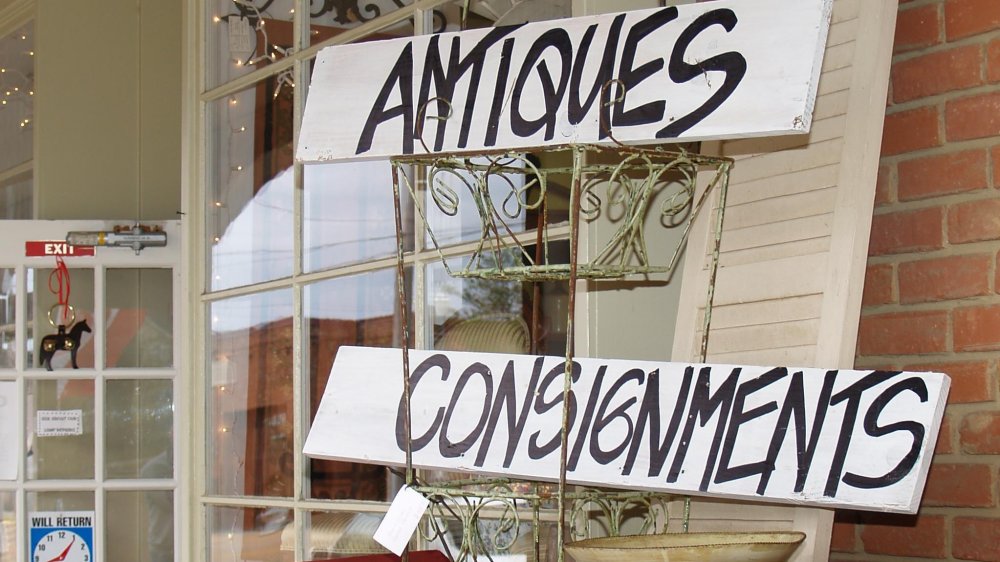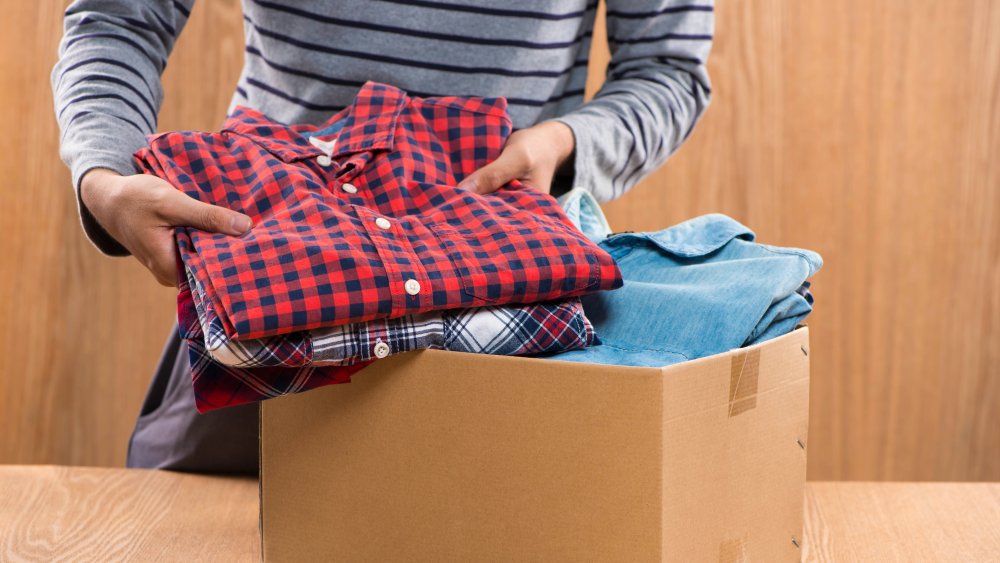The Truth About Consignment Stores
Consignment stores may, at first glance, seem like any other type of resale shop. They are stores filled with used clothing and other stuff, selling for fairly low prices. So is consignment store just some kind of fancy term for thrift store, then? No, these two types of secondhand store are actually quite different. While thrift stores get their goods from donations, and in many cases may be staffed by volunteer labor, consignment stores are businesses. They sell their stock "on consignment," meaning that a part of the profit from any item sold is shared with the person who supplied that item.
The fact that consignment stores even exist may come as a revelation if you have items you're needing to be rid of — you could actually earn some cash instead of just a small tax write-off. And all without the bother of trying to sell on eBay or Craigslist, too. If you're a dedicated thrift shopper, you may also want to check out consignment stores, since they offer a different type of shopping experience, but one which also offers up the possibility of serendipitous bargains (or at least the thrill of the hunt).
How to sell at consignment stores
If you're thinking of selling on consignment, be aware that only items in good (and clean!) condition are likely to be accepted. Thrift stores, since they're not paying you, will pretty much take anything — and then quietly dispose of whatever they think they can't sell. Consignment stores, on the other hand, are going to be much pickier about what items they choose to carry. If you can find a specialty consignment store that's dedicated to the type of item you're looking to sell — children's clothing, for example, or used wedding gowns or sporting equipment — Money Crashers suggests that this will likely increase your chances of making a sale.
You may also be offered two different types of payment plans. It's possible you could be offered cash upfront, which may amount to no more than pennies on the dollar, or perhaps store credit. You could also opt for a share of the profits when the item sells, although Man vs. Debt warns that your item's sale price may be discounted after a certain time elapses (30, 60, or 90 days). You may even be asked to pick up the item at this time if it is deemed no longer salable after spending so long on the rack.
How to shop at consignment stores
Consignment stores are often smaller and have less of a selection than thrift stores, although if you shop at a specialty store they may well have a far more extensive range of their particular items than you'd find at even the largest of general merchandise secondhand stores. Consignment merchandise may be priced somewhat higher than thrift store stock, as well, but will tend to be in better condition. In fact, Reader's Digest shares the fact that many consignment stores may offer brand-new merchandise, purchased at deep discount from stores that are going out of business. Another buying tip is that nicer neighborhoods usually have stores with higher-quality (and pricier) stuff than that found at stores in not-so-nice parts of town.
Even though consignment stores generally inspect their merchandise before offering it for sale, there are still a few stains and tears that might slip through the cracks. As most secondhand sales tend to be final, it's buyer beware. This also extends to merchandise that has been recalled, with baby items being a particular safety concern. If you're buying used goods, the manufacturer is unlikely to honor any agreement to repair or exchange these items.
As long as you're aware of what you should and shouldn't be buying from consignment stores, though, you can have fun shopping and maybe score some amazing hauls.


